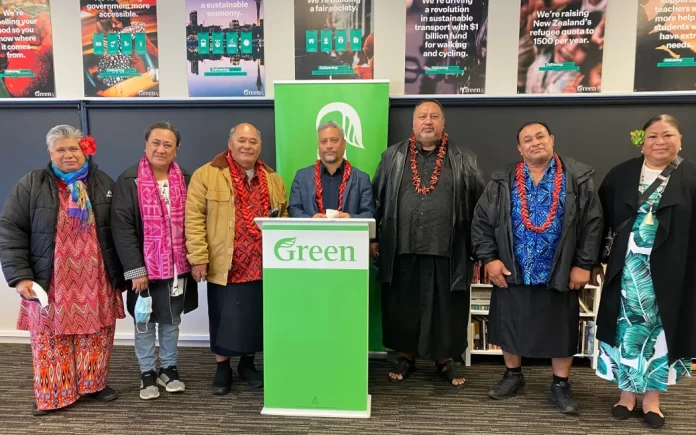Act and New Zealand First have shocked Parliament last night by supporting a bill to select committee that would provide entitlement to New Zealand citizenship for a group of people born in the then Western Samoa whose citizenship was removed by law in 1982.
The bill, Restoring Citizenship Removed by Citizenship (Western Samoa) Act 1982 Bill, is in the name of Green Party MP Teanau Tuiono.
It would create a pathway to citizenship for a group of older Samoans – thought to number about 5000 – who were born between 1924 and 1949.
“Fairness is at the heart of the bill,” Tuiono told Parliament.
“It is very simple. We had a group of New Zealand citizens who had their citizenship recognised and then they had their citizenship removed by statute.
“It’s just unfair, plain and simple. The state should not be able to remove citizenship wholesale like this.”
The Opposition parties and the public gallery erupted in applause when first of all Act MP Parmjeet Parmar said her party would be supporting the bill to select committee, and then Casey Costello said New Zealand First would also be supporting it.
The galleries were full of supporters including former MPs Anae Arthur Anae and Aupito William Sio. The Speaker of the Samoan Parliament and several MPs are also visiting Parliament this week.
The bill passed its first reading 74 votes to 49, with National being the only party that voted against it.
The bill addresses what has been a weeping sore since 1982 when the Muldoon Government passed a law effectively overturning a Privy Council ruling that had confirmed New Zealand citizenship on a cohort of people that had received citizenship when New Zealand established its own citizenship in 1948.
This bill will be considered by the government administration select committee. If the Greens’ support had been confined to Labour and Te Pāti Māori, it would not have passed.
But with either Act or New Zealand First, it had enough votes to get to select committee.
Samoa was until 1997 known as Western Samoa.
Parmar said Act wanted to assess the bill on the basis of equality and fairness and getting it to select committee would give it an opportunity to do that.
Costello said New Zealand First and its leader Winston Peters had advocated for the Pacific and would be supporting it to select committee.
She acknowledged that the bill did not confer citizenship but would allow an application to be made.
In supporting the bill, Labour deputy leader Carmel Sepuloni said the 1982 act had retrospectively removed citizenship from a group of people.
She said the bill presented an opportunity to honour the spirit of the apology previously made for the dawn raids.
In supporting material for the bill, the Green Party said set out the following:
New Zealand citizenship wasn’t created until 1948. Before then, New Zealanders were British subjects;
*At the time citizenship was created, New Zealand was administering present day Samoa (known until 1997 as Western Samoa);
*In 1982, Falema’i Lesa, a Samoan citizen living in New Zealand, was prosecuted for overstaying. She argued she wasn’t overstaying, as she said she was a New Zealand citizen;
*The Privy Council ruled that, because earlier NZ legislation had treated those born in Western Samoa after 13 May 1924 as “natural-born British subjects” for the purposes of NZ law, that cohort of people received NZ citizenship when NZ established its own citizenship in 1948;
*The Muldoon Government acted swiftly and in 1982 passed the Citizenship (Western Samoa) Act 1982;
*The 1982 Act removed NZ citizenship from those people who, under the earlier NZ legislation, had NZ citizenship because they were born in Western Samoa between 13 May 1924 and 1 January 1949, and those claiming citizenship through those people by descent or marriage;
*The Restoring Citizenship Removed By Citizenship (Western Samoa) Act 1982 would mean that a person whose NZ citizenship was removed by the 1982 Act will be eligible for citizenship as of right, instead of having to go through the standard residency and citizenship application processes.













